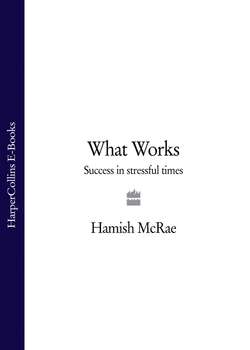Читать книгу What Works: Success in Stressful Times - Hamish McRae - Страница 17
3. WHAT COULD GO WRONG?
ОглавлениеIn one sense that is no longer the right question. The Irish economy has gone wrong. As I write in 2009 it is experiencing just about the most serious downturn of any developed economy, and is forecast to contract by more than 10 per cent between 2009 and 2011. It is too early to do more than sketch the reasons why the country should be so severely affected but it is clear that it allowed its property boom to get out of control and permitted wages and salaries to rise too quickly.
The reasons for these failures will be picked over by economists almost as closely as the reasons for the prior success but my own view is that given the rate of the climb some bump was inevitable. The property boom20 of the Dublin region had got out of hand and there is little the Irish authorities could have done about it. The boom was fuelled by the low interest rates of the Eurozone and Ireland could not increase rates while it remained a member.
Ireland’s decision to adopt the euro has brought it the benefit of being the only English-speaking country in the zone. That helped attract foreign investment. But it meant that Irish business people could borrow at below the rate of inflation, which they did with great abandon. While property values continued to go upwards, these loans were good; when values faltered following the credit crunch, many of those became bad debts.
With 20/20 hindsight the crisis could have been managed better. Maybe Ireland could have placed direct curbs on its banks, restricting their lending, particularly to property. It could and should have had more restrictive fiscal policies and might accordingly have been able to put itself in a better position to withstand the global recession. But what is done is done. What I find much more interesting is the way in which the Irish authorities, and society as a whole, has responded. Wages have been cut, often with workers offering pay cuts in exchange for greater job preservation. Public spending has been cut, more sharply than in any other EU member state. So Ireland is adapting to tough times.
Eventually growth will resume in Ireland as elsewhere. When it does Ireland will become a more ‘normal’ economy in the sense that it will grow at a rate of 3 or 4 per cent, not the 7 or 8 per cent of the boom years. Much of the growth spurt was catch-up, getting to where Ireland should have been. By the middle of the first decade of the twenty-first century it was just about there, so it was always going to have to adapt to slower growth. That will inevitably be tough both financially and socially.
The sudden burst of wealth that has hit Dublin from the early 1990s onwards has led to all the excesses you would expect. Stylish sure, but also flash, and that flashy element is much resented-and understandably so-by the hard-working people who have only partly shared in the dream.
The central point here is that, of course, all booms create excesses, and it is only when there has to be a shift to a more stable state that you can separate the froth from the substance. I have tried to argue here that there is solid substance to the Celtic tiger story, in particular in the education and quality of the Irish workforce and in the carefully crafted tax system of the country. It has faced a tough test and it will continue to struggle until secure growth is resumed. But when that happens, it will be an Ireland that is utterly different to the Ireland of even the early 1990s-an Ireland that looks outward, that is truly multicultural, that is increasingly influenced by the new Irish. For Ireland has been both an economic experiment and a social one.
The first has turned out to be a success story, albeit a flawed one. I am confident that in economic terms Ireland will resume its place as a beacon for the rest of the developed world.
The outcome of the great social experiment is less clear. It has invited huge numbers of other people to its shores-people who will become Irish but Irish with different attitudes and expectations. Over the next couple of decades, the new immigrants will create a new Ireland that will feel quite different to the familiar stereotype.
So there are risks but ultimately I see this as a human success story. It is about a group of political and economic leaders who got together with a mission not to carry on failing, and who then transformed the opportunities for millions of people-the old Irish and the new Irish-as a result. Walk down Grafton Street now and the place is still full of the ‘happy, smiling faces’ that led to my being brought up in Ireland. But they are different faces in the sense that they have come from all over the world. I think it is great.
